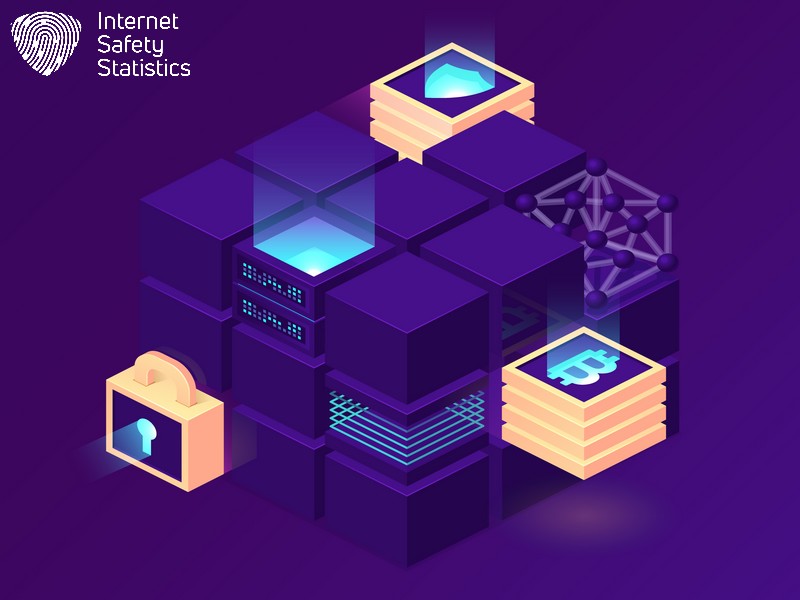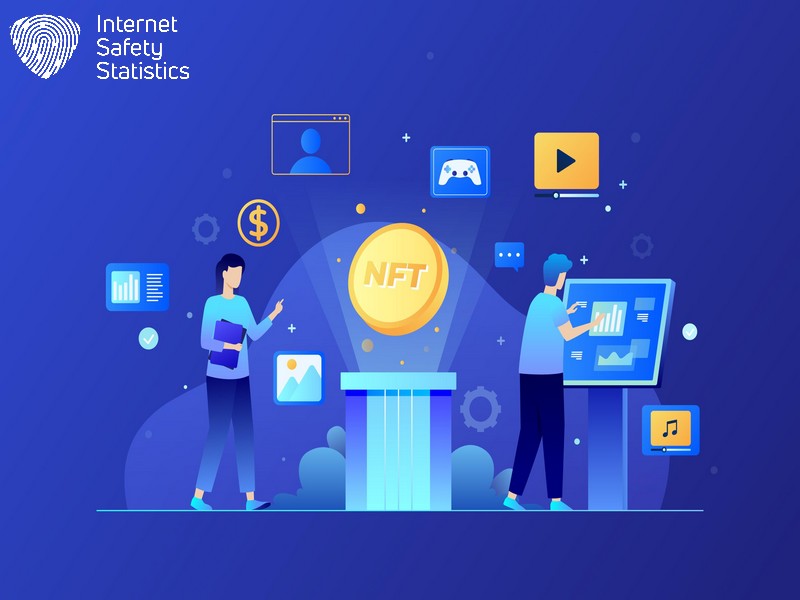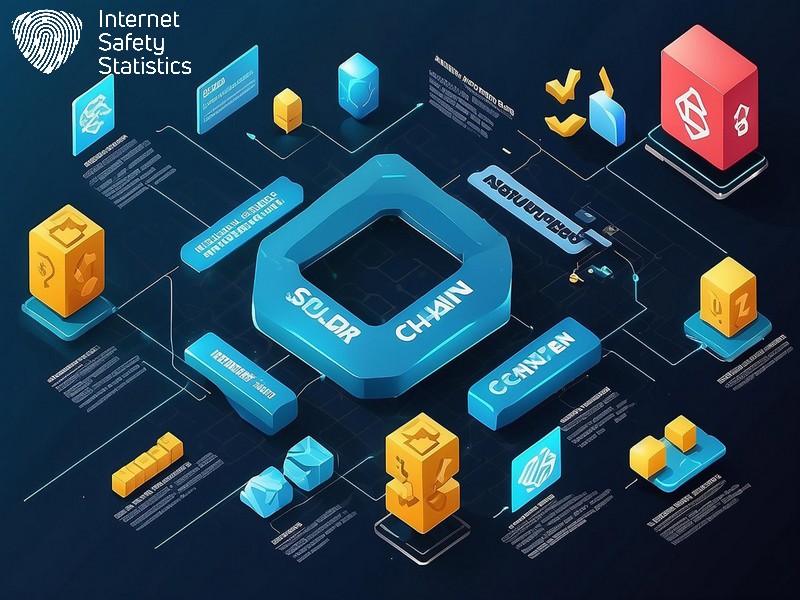
The security and privacy of medical records are paramount in today’s healthcare landscape. Breaches and unauthorised access can have devastating consequences, jeopardising patient privacy and the accuracy and integrity of critical health data. However, a revolutionary technology is emerging as a potential solution: blockchain.
Blockchain, known for its secure data management in cryptocurrencies, offers unique features that are ideal for healthcare. This distributed ledger technology creates an immutable record of transactions, ensuring data cannot be tampered with or altered once entered. Furthermore, access to this data is controlled through a permissioned system, granting authorised users secure access while safeguarding against unauthorised breaches.
This guide explores blockchain in healthcare, particularly its application in securing medical records and protecting patient privacy. We will delve into blockchain’s core functionalities and how they can revolutionise data management within healthcare systems. By exploring real-world examples and analysing potential challenges, this analysis will shed light on whether blockchain can serve as a digital guardian for our most sensitive medical information.
Dive in for a secure peek at the future of healthcare!
Understanding Blockchain Technology
Blockchain technology is a decentralised and distributed ledger system that offers enhanced security and privacy for managing medical records. It has its advantages and disadvantages regarding its application in healthcare.
Decentralised and Distributed Ledger
A decentralised and distributed ledger is like a digital record-keeping book shared across multiple locations. Imagine every medical transaction, from doctor visits to prescriptions, being recorded in real-time on this shared database. Such transparency means everyone involved—doctors, pharmacists, patients—can see the data without permission, but no single person or entity controls all the information.
This technology transforms how healthcare providers manage patient records by spreading copies of the data across various computers. Even if one computer fails or gets hacked, others can keep the system running without losing precious details about your health history.
Cryptography provides secure storage and privacy protection, making it difficult for unauthorised eyes to view your personal health information.
Advantages and Disadvantages of Using Blockchain in Healthcare
Blockchain technology offers a novel approach to safeguarding electronic health records and enhancing patient privacy. Its application in healthcare presents numerous benefits and challenges that merit careful consideration.
| Advantages | Disadvantages |
|---|---|
| Enhanced security through encryption makes patient data less susceptible to breaches. | Complex technology can lead to a lack of understanding among healthcare providers. |
| Decentralised data storage reduces single points of failure, mitigating the risk of cyber attacks. | Integration with existing systems can be costly and time-consuming. |
| Patients control their data, potentially improving trust in the healthcare system. | Technical challenges arise in converting paper records to digital format for blockchain use. |
| Data integrity is enforced, preventing unauthorised alterations to medical records. | Legal and regulatory frameworks may lag behind technology, creating uncertainty. |
| Blockchain promotes data interoperability, easing the sharing of information across providers. | Scalability issues could emerge due to the vast amount of data generated in healthcare. |
| Implements streamlined identity management, addressing concerns over privacy and access. | Data privacy concerns persist as sensitive patient information could potentially be exposed. |
| Enables secure sharing and consent management, protecting patient information. | Initial implementation costs and the need for regular system updates could be significant. |
The secure exchange of medical data is pivotal to modern healthcare, and blockchain may be the key to unlocking this potential. However, we must navigate the various challenges to fully reap blockchain’s benefits in the sector.
Enhancing Security and Privacy in Medical Record Management
Blockchain technology offers enhanced security and privacy preservation for medical records, reducing the risk of data breach incidents. It also ensures improved data integrity and promotes patient rights and ownership over their personal health information.
Blockchain-based Privacy and Security Preservation
Blockchain technology is vital in safeguarding electronic health records and ensuring patient privacy and security. Healthcare data stored on blockchain networks benefits from advanced encryption and decentralised storage, reducing the likelihood of unauthorised access or data breaches. Patient confidentiality is maintained through secure data sharing and management, which is essential for protecting sensitive medical information such as diagnostic images and patient records.
Implementing blockchain in healthcare addresses concerns about privacy, security, and accessibility of patient information. Through streamlined identity management solutions offered by blockchain technology, patients can have greater control over their health data while healthcare providers ensure the integrity and confidentiality of electronic health records.
Reduced Data Breach Incidents
Blockchain technology has significantly reduced data breach incidents in healthcare by providing secure and tamper-proof storage for electronic health records. Patient information is encrypted and stored across a decentralised network, decreasing the vulnerability to cyber-attacks and unauthorised access. This innovative approach ensures that sensitive medical data remains protected, offering patients and healthcare providers peace of mind.
With the improved security offered by blockchain, patient privacy and confidentiality are prioritised, contributing to a more trustworthy healthcare system. Moving forward, it’s crucial to consider the impact of enhanced data security on interoperability and patient rights within medical record management.
Improving Interoperability and Promoting Patient Rights
Blockchain technology improves data integrity and privacy, promoting patient rights and ownership while also enhancing data interoperability in the healthcare sector.
Enhanced Data Integrity and Privacy
Blockchain technology enhances data integrity and privacy by providing a secure and decentralised platform for managing medical records. Patient information is stored in an immutable ledger, ensuring data remains tamper-proof and accurate over time. This helps maintain the integrity of healthcare data while safeguarding patient privacy. Encrypted keys can also carefully control access to sensitive medical records, promoting data privacy and security.
Healthcare organisations are embracing blockchain to improve the confidentiality and accessibility of electronic health records (EHR). Patient information is securely stored and shared using advanced encryption techniques, reducing the risk of unauthorised access or data breaches.
Improved Data Interoperability
Blockchain technology enhances data interoperability by creating a secure and unified platform for sharing electronic health records (EHR) across healthcare providers. This enables seamless access to patient information, ensuring efficient coordination of care and improved communication among various medical professionals involved in the patient’s treatment.
Furthermore, blockchain promotes better data standardisation and integrity, providing more accurate and comprehensive insights into a patient’s medical history. As a result, patients can experience enhanced continuity of care and reduced duplication of tests or procedures when moving between different healthcare facilities.
Moreover, leveraging blockchain technology fosters increased transparency and trust in healthcare data exchange. It allows for the secure transferability of EHRs while maintaining individual privacy rights through encrypted transactions.
Promoting Patient Rights and Data Ownership
Improved data interoperability facilitates seamless sharing of medical records between healthcare providers, empowering patients with greater control over their health information.
Patients can securely access and manage their health data using blockchain technology while protecting their privacy and rights. This decentralised approach to data ownership allows individuals to give or revoke consent for using their medical records, promoting transparency and autonomy in healthcare decision-making. With enhanced patient rights and data ownership, blockchain contributes to a more equitable and patient-centric healthcare system.
Blockchain technology ensures that patients own their health records, enabling them to determine who can access their sensitive medical information. This empowers individuals by giving them greater control over how their data is used within the healthcare system.
Additionally, patients can exercise full authority over who can view or modify their health records through secure digital identities and encrypted transactions on the distributed ledger.
Risks and Challenges in Implementing Blockchain in Medical Records

Implementing blockchain in medical records comes with risks and challenges, including the lack of technical knowledge among healthcare professionals, data privacy concerns, legal and regulatory challenges, and the risk of cyber attacks. However, understanding and addressing these challenges is crucial for successfully integrating blockchain technology into healthcare systems.
Lack of Technical Knowledge
Many individuals lack the technical knowledge to understand and implement blockchain technology in healthcare. This can hinder the adoption of secure electronic health record systems and decentralised data management solutions.
As a result, there is a need for simplified educational resources to help bridge this knowledge gap, enabling more individuals to comprehend and contribute to the implementation of blockchain-based medical record security measures.
Due to its complexity, healthcare professionals may find it challenging to grasp the intricate workings of blockchain technology. Simplifying technical concepts through accessible training programmes and educational materials could empower them with the essential know-how needed for successful integration into healthcare data management systems.
Data Privacy Concerns
Amid blockchain’s potential in healthcare, data privacy concerns are a significant issue. Sensitive medical information, patient records, and diagnostic images must be protected from unauthorised access or breaches. As electronic health records (EHR) are increasingly digitised and stored using blockchain technology, it becomes crucial to ensure that patients’ data remains confidential and secure.
Blockchain offers enhanced security solutions; however, its implementation must address the complexities of healthcare data privacy regulations and safeguard against cyber threats.
The risk of cyber attacks on blockchain-based EHR systems presents a critical concern for securing electronic healthcare data. Healthcare organisations must ensure that patient consent management is effectively integrated into blockchain frameworks to maintain confidentiality while promoting interoperability among different health information exchange platforms.
Legal and Regulatory Challenges
In addressing blockchain integration in healthcare, it is essential to acknowledge the legal and regulatory challenges. Implementing blockchain technology in managing medical records poses several legal considerations concerning data privacy, security, and patient consent management.
Data sharing and processing regulations in the healthcare industry must align with blockchain solutions to ensure compliance with existing laws on patient rights and data protection. Moreover, implementing decentralised identity solutions faces regulatory hurdles requiring careful navigation for seamless adoption across healthcare systems.
Navigating legal frameworks can facilitate a seamless transition to incorporating blockchain technology in managing medical records while ensuring adherence to regulations about patient privacy, data security, and consent management.
Risk of Cyber Attacks
Addressing the potential risks of cyber attacks is crucial when considering implementing blockchain technology in medical records. With the increasing reliance on digital health platforms, there is a heightened vulnerability to malicious cyber activities such as unauthorised access, data breaches, and ransomware attacks. It’s essential to be vigilant about these threats and ensure robust security measures are in place to protect sensitive healthcare data from exploitation.
Integrating blockchain for securing medical records brings unique cybersecurity challenges, including identifying vulnerabilities within the decentralised system and safeguarding against sophisticated hacking attempts.
How to Implement Blockchain in Medical Record Management?

The first step in implementing blockchain in medical record management is identifying the need for a secure and decentralised system. Next, a blockchain framework should be developed to focus on patient identity verification and record digitisation. Finally, the system should be regularly audited and updated to ensure data integrity and security.
Identification of the Need
Healthcare data security is a critical concern, prompting the need to explore innovative solutions like blockchain technology. The increasing digitisation of medical records and the rising number of cyber threats have highlighted the necessity for secure electronic health record storage.
This has led to identifying a pressing need for more robust methods to safeguard patient information and ensure privacy in healthcare data management.
Blockchain technology can address this need by offering decentralised healthcare data management and protecting patients’ confidential information from unauthorised access or breaches.
Development of a Blockchain Framework
Blockchain framework development involves creating a secure and decentralised system for managing medical records. It begins with identifying the need for blockchain technology in healthcare to enhance data security and privacy.
The framework encompasses patient identity verification, digitising paper records, and implementing the blockchain system. Regularly auditing and updating the system is crucial to safeguard sensitive medical data effectively.
This framework addresses patient ownership of their health information. This approach aims to streamline identity management in healthcare records while addressing concerns over privacy, security, and access to medical data.
Patient Identity Verification
Ensuring patient identity verification is crucial in maintaining the integrity and security of medical records. Using blockchain technology, healthcare providers can establish a reliable method for verifying patient identity, reducing the risk of fraudulent access to sensitive health information.
Implementing decentralised identity solutions through blockchain allows for secure and efficient verification processes, safeguarding personal health data from unauthorised access or tampering.
Furthermore, blockchain-based patient identity verification promotes streamlined access to medical records while giving patients greater control over who can view their information.
Record Digitisation

Digitising records involves converting paper-based medical records into electronic formats and capturing new patient information digitally. This process is crucial in implementing blockchain technology in healthcare, ensuring that sensitive medical data, diagnostic images, and patient records are securely stored and protected.
With ongoing projects focused on using blockchain for electronic health records and healthcare data security, digitising records is a pivotal step towards enhancing the security of personal health information and improving patient rights.
Record digitisation is essential to ensuring seamless integration with secure decentralised systems as part of the framework for implementing blockchain in medical record management.
By transitioning from paper to digital formats and electronically capturing new patient information, blockchain can safeguard patient privacy while promoting improved data interoperability.
Blockchain Implementation
Implementing blockchain in medical record management involves several key steps. First, there is a need to identify the system’s specific requirements. Then, a robust blockchain framework must be developed, ensuring secure and decentralised patient data storage.
Patient identity verification is essential for maintaining accurate records and preventing unauthorised access or tampering. Before deploying blockchain technology in healthcare, the crucial step is to convert paper records into digital format and capture new patient information electronically. Regular auditing and updating of the system help maintain its functionality and security.
Regular Auditing and Updating of the System
Regular auditing and updating of the blockchain system are essential to maintain the integrity and security of medical records. Auditing helps identify potential vulnerabilities or unauthorized access attempts, allowing timely intervention to strengthen data protection measures.
By regularly updating the blockchain system, healthcare providers can ensure it remains equipped with the latest security features and protocols, safeguarding patient privacy and preventing potential breaches. Ensuring regular auditing and updates is crucial in keeping up with evolving cyber threats and maintaining robust data security in the ever-changing digital health landscape.
The potential of blockchain technology in healthcare is being explored to secure electronic health records (EHR) and ensure patient privacy. Ongoing projects and research are focused on utilising blockchain for EHRs, record systems, and healthcare data security. Blockchain’s ability to safeguard patient information through secure data sharing and decentralised identity solutions shows promise in addressing concerns over privacy, security, and access in healthcare.
As the industry continues to analyse challenges, it is evident that blockchain has the potential to revolutionise medical record management while prioritising patient rights and data ownership. With a focus on enhancing security, improving interoperability, and promoting patient privacy, blockchain presents an exciting opportunity for the future of digital health.
FAQs
What is blockchain technology in healthcare?
Blockchain technology for healthcare provides secure data storage through a distributed ledger, protecting medical records and patient privacy.
How does blockchain help with remote patient monitoring?
Blockchain’s decentralised approach enhances the security of data transmission in remote patient monitoring, keeping sensitive health information safe from unauthorised access.
Can blockchain keep my health records safer than traditional methods?
Yes, blockchain for digital health uses advanced encryption to lock down your medical records on a distributed network, boosting defence against privacy breaches.
Is sharing my medical information with doctors using blockchain easy?
Utilising blockchain makes sharing your health data with authorised healthcare providers efficient while maintaining strict control over who can see your personal information.
